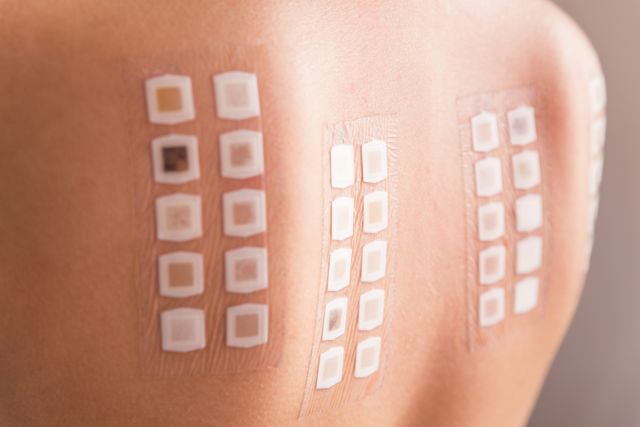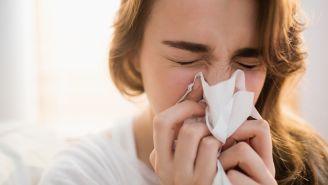Updated on June 21, 2024.
If you have allergies, you’re not alone. More than 50 million Americans have allergies, making it the sixth most common chronic illness.
But it’s not enough to know that you share company with millions of others. To treat allergies more effectively, you first need to know what is causing your allergic reactions. Allergy tests are quick and painless ways to find out. Learn how allergy tests are done before you head to the appointment.
What are allergies?
Allergies are the immune system’s response to certain elements in the environment. These substances are ordinarily harmless. But when someone with allergies encounters them, the immune system overreacts and causes a cascade of symptoms. The triggers for this immune response are called allergens.
There are a few types of allergies and allergens:
- Seasonal allergies, like pollen and sometimes mold
- Perennial allergies, which are commonly caused by dust mites and animals
- Food allergies, which often include wheat, eggs, milk, peanuts, tree nuts, soy, fish and shellfish
What are allergy tests?
If you want to know your specific allergens, you’ll need an allergy test. There are two types: skin tests and blood tests.
“Both are equally valid and very good at detecting allergies, and, overall, are considered comparable tests,” says Christopher Webber, MD, an allergist in Colorado Springs, Colorado.
How are allergy tests done?
Though both tests are simple and accurate, the blood test is more convenient. According to Dr. Webber, a blood test can be done in your primary care doctor’s office at any time of the day, doesn’t require an empty stomach, and you don’t need to stop taking allergy medications. The drawback is that the test results take longer to process. You’ll receive them within a week, says Webber.
A skin test must be done at an allergist’s office, according to Webber, but you’ll have results in about 20 minutes. You can’t take antihistamines for five to seven days before the test.
When you get a skin test, an allergist will typically rub pieces of plastic that have been dipped in various allergens—such as foods, pet dander, or pollen from different trees, grasses, and weeds—on your back.
A positive skin test will cause a hive or welt on the skin that lasts for about 20 minutes.
Does allergy testing hurt?
It doesn’t hurt, says Webber. “It is usually very fast, sometimes feels like a small poke that is barely noticeable, does not cause bleeding, and is tolerated at all ages,” he says. “But it does itch. Everyone is worried about the hurt, but forgets the itch.”
False negatives and false positives
Webber says that there are two situations that could cause either a false negative or a false positive in an allergy test. It’s an allergist’s job to interpret the results of the test. (A false negative indicates you don't have a condition that you actually do have. A false positive indicates you have a condition when you don't actually have it.)
About one in four people with seasonal allergy symptoms don’t actually have allergies. Instead, they have irritant rhinitis, also called nonallergic rhinitis. This has many of the same symptoms as allergies but the immune system is not involved as it is with allergies.
Triggers for irritant rhinitis include cigarette smoke, strong smells, dust, and air pollution, according to Webber. An allergy test could come up negative, but that doesn’t mean a person doesn’t have symptoms, he says.
Testing for food allergies can sometimes cause a false positive. That means there’s an immune system response to the allergen, but there are no symptoms.
“The test correctly measures the presence of an allergy antibody, but an allergy is the presence of allergy antibody plus symptoms,” Webber says. “Having a positive test does not, by itself, mean you have an allergy.”
What you can do about allergies
Once you’ve received your test results and you know what’s causing your allergic reactions, how do you manage your allergies?
For food allergies, simply avoid the allergen and keep an EpiPen ready in case you come in contact with it. (An EpiPen is an injectable dose of epinephrine, a drug that strengthens the heartbeat by stimulating the adrenal glands. It is used in the case of severe allergic reactions that can become life-threatening.)
For seasonal allergies, the first step is tracking the pollen count, so you know when to expect symptoms. When the pollen count is moderate to high, Webber advises taking these steps:
- Keep your windows closed so pollen doesn’t get in.
- Shower at night, so pollen doesn’t move from your hair to your pillow while you sleep.
- Exercise inside instead of outside.
Consider investing in air purifiers and vacuums with HEPA (high-efficiency particulate air) filters. These can help remove many types of allergens from the air so you don't breathe them in.







